Online Marketing Tips Blog
In this Daily blog, I'll try to answer the most burning questions for online marketing that I get in my consulting business. We help online business owners who are in affiliate marketing, coaching, eLearning and Online Events every single day. I'll share that info with you!

Why Downgrading Your Tools Could End Your Digital Marketing Business
Starting a digital marketing business is an exciting step toward achieving financial independence and creative control. Many marketers begin their journey by investing in the essentials—paying for courses, signing up for premium platforms, and building their first funnel or online store. But as time goes on and profits don’t immediately flow in, a shift often happens. The focus moves from growth to cost-cutting.
This is where the downward spiral can begin. Marketers choose cheaper tools, downgrade their platforms, and sacrifice functionality. While this might feel like a smart decision in the short term, it’s a mindset that often leads to the eventual failure of their business. Why? Because successful businesses grow by optimizing and evolving—not by shrinking.
This article explores the progression many digital marketers go through and explains why the “find a cheaper option” mindset is a common but fatal flaw. More importantly, it will highlight actionable strategies to focus on revenue growth—not just cost reduction.
The Common Spending Path of Digital Marketers
1. The Initial Investment Phase
When you’re starting your digital marketing business, excitement is at its peak. You’re eager to build something profitable and scalable, so you invest in what seems like the best tools and resources.
Courses and Training: Whether it’s a renowned online marketing course or hours spent on platforms like Coursera or Udemy, most beginners are willing to spend money to learn the fundamentals.
Premium Hosting Platforms: Marketers often start with leading platforms like ClickFunnels, Shopify, or Kajabi to host funnels or online stores. These platforms are packed with features but come at a higher price tag.
Marketing Tools: CRMs, email marketing software, SEO tools, and AI-powered ad optimization platforms all become part of the initial toolkit.
At this stage, you’re building a strong foundation. The functionality and scalability of these tools allow you to focus on marketing strategies, content creation, and customer acquisition.
2. The “Why Am I Not Making Money?” Phase
Unfortunately, digital marketing doesn’t guarantee overnight success. After a few months of investing time and money with little to no revenue, doubts typically emerge. Impatience and frustration set in, leading to a perceived need to “trim the fat.”
You look at your monthly expenses and think, “Do I really need this $100-per-month funnel software?”
You question the value of premium CRM tools if your email list isn’t growing as expected.
You start searching for “free” or “cheaper” tools.
This stage is the tipping point for many digital marketers. The focus shifts from growth to survival—and not in a good way.
3. The Downgrade Spiral
Once cost-cutting becomes the primary focus, the real issues begin to snowball. Choosing cheaper tools might make your cash flow look better temporarily, but the long-term consequences can be devastating.
Here are common downgrades and their impacts:
Switching to Cheaper Funnel or Store Platforms
Many marketers leave premium platforms for cheaper alternatives that don’t offer the same level of functionality. While you might save $50 a month, you’re losing advanced features like A/B testing, robust analytics, engaged communities and integrated email marketing with high levels of deliverability.
Opting for Free Tools with Limited Features
Free tools often come with restricted functionality. For example, a free email marketing tool may limit the number of contacts you can engage with, stunting your ability to scale, or deliverability may suffer because of a high use by spammers.
Cutting Marketing Spend
Instead of fine-tuning your ad campaigns, you cut your ad spend entirely. But fewer ads mean fewer leads, less traffic, and minimal opportunity for conversions.
While downgrading might feel like a safer way to keep your business afloat, it often leads to stagnation. You’re no longer focusing on the real goal—growth.
Why the “Cheaper Option” Mindset Ruins Businesses
1. Limited Functionality Leads to Lost Opportunities
High-quality tools are designed to give you an edge in a competitive market. Whether it’s robust analytics, seamless integrations, or customer support, premium platforms come with features that save time and maximize ROI. Downgrading removes these advantages, leaving you with tools that require more manual effort and deliver fewer insights.
2. Scaling Becomes Impossible
Growth-oriented businesses rely on scalability. When you compromise on key tools, you limit your ability to handle increased traffic, larger email lists, or higher volumes of sales. Cheap tools might work when you’re small, but they’ll hold you back just when your business needs to expand.
3. It Shifts Focus Away from Revenue Growth
Instead of brainstorming strategies to drive more traffic, boost conversions, or increase average order value, you’re stuck in a cycle of cost-cutting. This survival mindset takes your energy away from the activities that actually grow your business.
4. It Erodes Customer Experience
Downgrading tools often impacts your customers. For instance, cheap or free email platforms might result in poorly designed emails, while less sophisticated CRMs might lead to delayed or impersonal responses. A subpar customer experience drives people away.
Shifting Focus from Cost-Cutting to Growth
Choosing growth over cheap solutions doesn’t mean ignoring cash flow problems. It means adopting a mindset that prioritizes investing in the right areas while simultaneously finding ways to drive more revenue. Here’s how you can do it:
1. Maximize the Use of Your Current Tools
Are you fully utilizing the tools you’ve already invested in? Many marketers don’t explore all the features their platforms offer. For example, are you using advanced segmentation in your email campaigns? Are you leveraging analytics dashboards to optimize performance?
2. Focus on Revenue-Generating Activities
Identify the actions that directly impact your bottom line. This might be:
Optimizing your ad campaign to drive more leads.
Creating high-value content that attracts organic traffic.
Nurturing your email list with irresistible offers.
When you focus on growth, revenue naturally follows.
3. Invest in Personal Development
Instead of downgrading your tools, upgrade your skills. Invest time in learning how to run an effective paid ad campaign, write better sales copy, or improve your product positioning. The more skilled you are, the more returns you’ll see on your investments.
4. Track ROI, Not Just Costs
Rather than focusing solely on how much a tool costs, evaluate its return on investment. For instance, a premium platform that helps drive 20% more conversions is worth far more than a free one that offers limited functionality.
5. Build a Consistent Long-Term Strategy
Successful digital marketing businesses take time to grow. Have a clear roadmap of your broader goals and milestones, and make decisions based on where you want to be in the long term—not just what feels easier today.
Build a Mindset for Success
Downgrading your tools might feel like an easy fix when your digital marketing business hits a rough patch. But in reality, it’s a mindset that focuses on shrinking rather than thriving. Instead of looking for cheaper options, channel your energy into using premium tools more effectively, investing in your growth, and prioritizing revenue-generating activities.
Your business’s success comes down to the decisions you make. Are you optimizing for long-term growth? Or are you cutting corners in ways that could cost you everything?
Stick with tools that empower your success. Stay growth-focused. And watch how your digital marketing business transforms.
We have an incredible new course that will literally change the way you think about yourself in business as well as in life, to improve any specific portion of your life! Whether you are struggling with a personal relationship, or struggling with any aspect of your business, this 5 Step Process is truly a game changer.
Watch our Podcast episode on the Confidence Challenge for more information on this transformative workshop to change your mindset.
Disclaimer: If you click on links we provide and make a purchase, we may receive compensation. There is never any guarantee of income in any of the links or programs we provide.
If you have specific questions you would like to see answered in this blog, please send them to me at [email protected]. I will try to address every question here.
If you follow the links in my blog, some of them will be affiliate links and I will be compensated if you purchase a course or product from these links. This is no way increases your price or changes my opinion on these courses. I only recommend things I use in my business.
For the absolute best training online for Affiliate Marketing, Coaching, Events & Masterminds and eLearning - Online Courses: Check out our Flagship Program Here.

Copyright © 2024 | All Affiliate Cash | All Rights Reserved
There may be affiliate links on these pages. When you follow them and purchase something, I may be paid a commission. This does not raise your cost of the item, and does not influence my opinion or review of the item in any way.
NOT FACEBOOK™: This site is not a part of the Facebook™ website or Facebook Inc. Additionally, This site is NOT endorsed by Facebook™ in any way. FACEBOOK™ is a trademark of FACEBOOK™, Inc.

